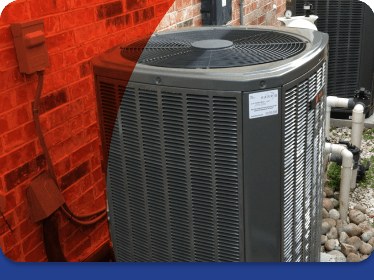Indoor Air Quality FAQs
How often do you think about the air you breathe in your home? Indoor air quality (IAQ) is more important than you might realize. It affects your health, comfort, and overall home environment, with poor air quality leading to allergy symptoms, musty odors, and even structural damage. We’ve compiled this list of frequently asked questions to address the most common inquiries about IAQ.
Frequently Asked Questions About Indoor Air Quality
1. Do Air Filters Improve Air Quality?
Yes—as long as they have a high enough minimum efficiency reporting value (MERV) rating. Use a filter rated at least MERV 8 to trap dust, pollen, and other pesky particles small enough to improve air quality. Just remember to change it regularly to avoid restricting airflow.
2. Do Dehumidifiers Help With Mold?
Absolutely. Mold loves moisture, so running a dehumidifier to keep humidity levels in check makes your home less palatable to these microorganisms.
3. How Do I Know if I Need a Whole-House Dehumidifier?
If your home feels overly humid, with condensation on windows, musty smells, or visible mold, you know the humidity is too high. To be sure, purchase a handheld device called a hygrometer to measure the relative humidity from room to room. If it’s above 50%, installing a whole-house dehumidifier should help.
4. How Can I Improve the Air Quality in My Older House?
Older homes have character—and sometimes a bit of extra dust. Start by ensuring good ventilation. That means running the kitchen and bathroom exhaust fans when you cook and shower. Cleaning helps, too, including vacuuming with a HEPA filter and dusting surfaces regularly. Adding an air purifier to your HVAC system is another good way to boost your IAQ.
5. How Do You Get Dust Out of the Air in Your House?
Dust happens, but there are ways to control it. Use a high-quality air filter, maintain your HVAC system, and invest in a whole-house air purifier. Regularly vacuuming the carpet and upholstery also helps keep dust particles at bay.
6. What Are Common Indoor Air Pollutants?
Aside from dust, indoor air may contain pet dander, mold spores, pollen, radon, and volatile organic compounds (VOCs) from household products. Cooking fumes, second-hand smoke, and carbon monoxide are also concerns. Keeping these in check is the key to maintaining good IAQ.
7. Can I Install a Programmable Thermostat Myself?
Technically, yes, as long as you’re handy with tools and comfortable around wiring. If the thought makes you nervous, it’s perfectly fine to call in a pro.
8. What Does a Smart Thermostat Do?
A smart thermostat is your HVAC system’s sidekick. Wi-Fi connectivity is the primary feature, allowing you to adjust the temperature from anywhere. Some learning models make automatic adjustments based on your schedule and preferences, keeping you comfy while saving energy. You can also review energy usage data to help you determine ways to save next month.
9. What Happens If You Put an Air Filter in Backwards?
Installing an air filter backward reduces its effectiveness and may damage your HVAC system. Always check for the airflow direction arrow on the filter frame and install it accordingly. If you’re unsure, ask your technician for help at your next maintenance visit.
10. What Does an Indoor Air Quality Test Check For?
Indoor air quality testing checks for pollutants like VOCs, mold, carbon monoxide, and radon. Identifying these culprits helps you take targeted actions to improve your home’s air quality.
Why Choose Harris Air for Indoor Air Quality Solutions?
Clean air is essential for a happy, healthy home. If you need help breathing easier, reach out to Harris Air Services, a locally owned and operated company serving McKinney, TX, since 2008. Our A+ rating with the BBB reflects our commitment to honesty and top-notch customer service. We also offer honest, transparent pricing and same-day appointments to address your IAQ concerns promptly. Our technicians have the authority to do what’s necessary to make you happy.
Contact us today to schedule an indoor air quality consultation.
; ?>)
; ?>)






